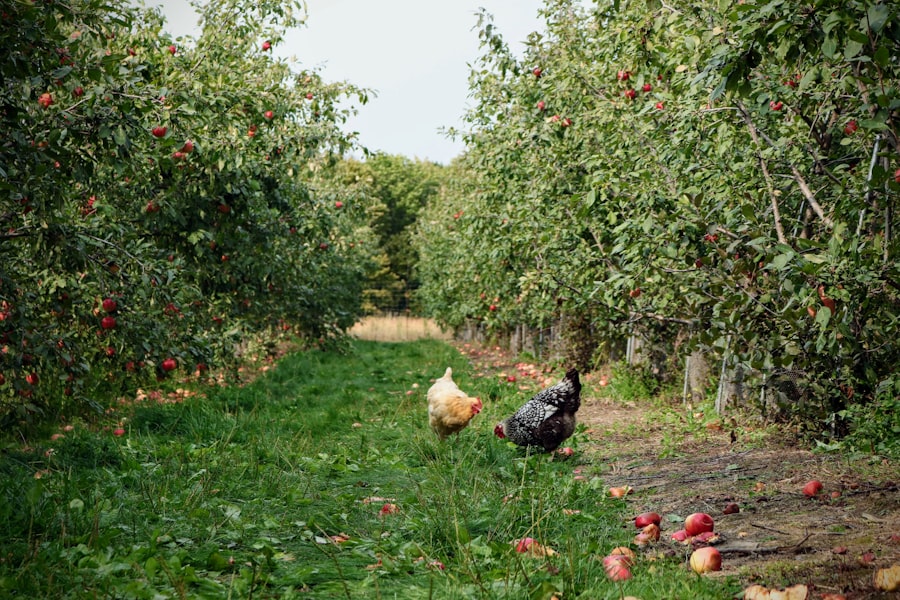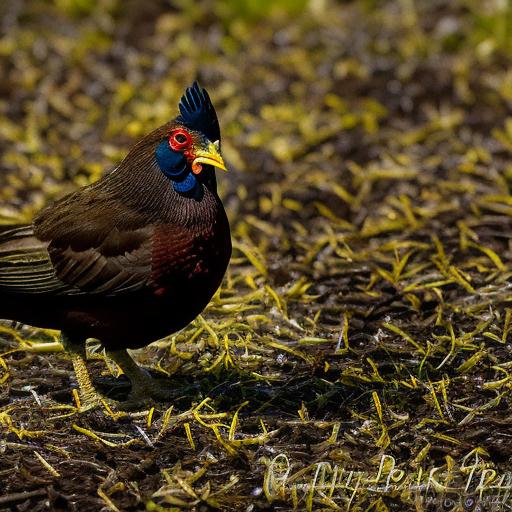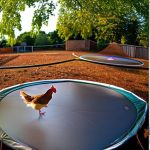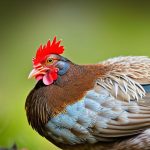Keeping chickens has become increasingly popular in recent years, and for good reason. Not only do chickens provide a sustainable source of fresh eggs, but they also offer a range of other benefits. They can help control pests in your garden, provide natural fertilizer for your plants, and even serve as friendly and entertaining pets. Washington State is an ideal place to keep chickens due to its moderate climate and abundance of outdoor space. Whether you live in a rural area or a suburban neighborhood, keeping chickens can be a rewarding and enjoyable experience.
Key Takeaways
- Keeping chickens in Washington State is legal and regulated by local ordinances.
- The climate in Washington State requires choosing chicken breeds that can tolerate cold and wet weather.
- Building a chicken coop in Washington State requires proper insulation and ventilation to protect chickens from extreme temperatures.
- Essential features of a chicken coop in Washington State include nesting boxes, roosting bars, and a secure door to protect against predators.
- Maintaining cleanliness and hygiene in your chicken coop is important for the health of your chickens and to prevent the spread of disease.
Legal Regulations for Keeping Chickens in Washington State
Before you start your own backyard flock, it’s important to familiarize yourself with the laws and regulations regarding keeping chickens in residential areas in Washington State. Each city or county may have its own specific rules, so it’s crucial to check with your local government or zoning department to ensure compliance. In general, most areas allow residents to keep a certain number of chickens, typically between 3 and 8, as long as certain conditions are met. These conditions may include keeping the coop a certain distance from neighboring properties, maintaining cleanliness and hygiene standards, and obtaining any necessary permits or licenses.
To obtain the necessary permits and licenses, you will likely need to submit an application to your local government or zoning department. This application may require information such as the number of chickens you plan to keep, the size and location of your coop, and any measures you will take to mitigate noise or odor concerns. It’s important to be thorough and accurate when completing the application to ensure a smooth approval process. Additionally, it’s a good idea to familiarize yourself with any ongoing requirements or inspections that may be necessary to maintain compliance with the regulations.
Choosing the Right Breed of Chicken for Washington State Climate
When selecting chickens for your backyard flock in Washington State, it’s important to consider the climate and weather conditions. Washington State has a moderate climate with mild summers and cool, wet winters. This means that you will need to choose chicken breeds that are well-suited to these conditions. Some breeds that thrive in Washington State include the Rhode Island Red, Plymouth Rock, and Sussex. These breeds are known for their hardiness, adaptability, and ability to withstand colder temperatures.
It’s also important to consider your specific needs and preferences when choosing a breed. Some breeds are known for their egg-laying abilities, while others are prized for their meat or ornamental qualities. If you’re primarily interested in a steady supply of fresh eggs, breeds such as the Leghorn or Australorp may be a good choice. On the other hand, if you’re looking for a dual-purpose breed that can provide both eggs and meat, breeds like the Orpington or Wyandotte may be more suitable. Take the time to research different breeds and consider factors such as temperament, size, and egg production to find the right fit for your needs.
Building a Chicken Coop in Washington State
Once you’ve chosen the right breed of chicken for your backyard flock in Washington State, it’s time to start building a chicken coop. A well-designed and properly constructed coop is essential for the health and safety of your chickens. Before you begin construction, it’s important to gather all the necessary materials and tools. You will need materials such as lumber, wire mesh, roofing materials, and hardware for hinges and latches. Tools such as a saw, drill, hammer, and wire cutters will also be necessary.
When choosing a location for your coop, it’s important to consider factors such as sunlight exposure, drainage, and proximity to your house. Chickens need access to sunlight for vitamin D production and overall health, so choose a location that receives at least 4-6 hours of direct sunlight per day. Additionally, ensure that the area has good drainage to prevent flooding and water accumulation. Finally, consider the proximity to your house for convenience and ease of access when caring for your chickens.
Chicken Coop Design and Layout
There are several different types of chicken coop designs and layouts to choose from, depending on your needs and preferences. The most common types include traditional coops, mobile coops, and chicken tractors. Traditional coops are stationary structures that provide a permanent home for your chickens. They typically have an enclosed area for roosting and nesting, as well as an attached outdoor run for exercise and fresh air. Mobile coops, also known as chicken tractors, are designed to be easily moved around your yard or garden. They allow your chickens to graze on fresh grass and insects while still providing protection from predators. Chicken tractors are a great option if you have limited space or want to rotate your chickens around different areas of your yard.
When designing the layout of your coop, it’s important to consider factors such as ventilation, lighting, and ease of cleaning. Proper ventilation is crucial for maintaining good air quality and preventing the buildup of moisture and ammonia. This can be achieved through windows, vents, or openings in the coop design. Additionally, ensure that the coop has adequate lighting to promote egg production and overall health. Natural light is best, but you may need to supplement with artificial lighting during the winter months. Finally, consider the ease of cleaning when designing your coop layout. Include features such as removable roosts or nesting boxes, easy-to-clean flooring materials, and access doors for cleaning purposes.
Essential Features of a Chicken Coop in Washington State

Regardless of the design or layout you choose for your chicken coop in Washington State, there are several essential features that every coop should have. These features are crucial for the health, safety, and well-being of your chickens. First and foremost, your coop should provide adequate space for your chickens to move around comfortably. The general rule of thumb is to allow at least 4 square feet of floor space per chicken in the coop, and at least 10 square feet per chicken in the outdoor run. This will prevent overcrowding and reduce the risk of disease transmission.
Another essential feature of a chicken coop is proper insulation and ventilation. Insulation is important for regulating temperature and preventing drafts, especially during the colder winter months. Ventilation, on the other hand, helps remove excess moisture, ammonia, and odors from the coop. This can be achieved through windows, vents, or openings in the coop design. Additionally, ensure that your coop has secure doors and windows to protect against predators. Use sturdy materials and hardware such as locks, latches, and wire mesh to prevent unauthorized access.
Maintaining Cleanliness and Hygiene in Your Chicken Coop
Maintaining a clean and hygienic chicken coop is crucial for the health and well-being of your chickens. A dirty or unsanitary coop can lead to the spread of diseases, parasites, and other health issues. Regular cleaning and maintenance should be part of your routine to ensure a healthy environment for your chickens. Start by removing any soiled bedding or droppings from the coop on a daily basis. This will help prevent the buildup of ammonia and reduce the risk of respiratory issues. Replace the bedding as needed to keep the coop clean and dry.
In addition to regular cleaning, it’s important to practice good biosecurity measures to prevent the introduction and spread of diseases. This includes quarantining new chickens before introducing them to your existing flock, limiting contact with other poultry or wild birds, and practicing good hygiene when handling chickens or their eggs. It’s also a good idea to periodically disinfect your coop using a poultry-safe disinfectant. Follow the manufacturer’s instructions for proper dilution and application methods.
Feeding and Watering Your Chickens in Washington State
Proper nutrition is essential for the health and productivity of your chickens. In Washington State, chickens require a balanced diet that includes a combination of commercial feed, kitchen scraps, and foraged greens. Commercial chicken feed is formulated to provide the necessary nutrients, vitamins, and minerals that chickens need. Choose a feed that is appropriate for the age and type of chickens you have. For example, chicks require a starter feed with higher protein content, while laying hens need a feed with added calcium for egg production.
In addition to commercial feed, you can supplement your chickens’ diet with kitchen scraps and foraged greens. Chickens are omnivores and will eat a wide variety of foods, including fruits, vegetables, grains, and insects. However, it’s important to avoid feeding them toxic or harmful foods such as chocolate, onions, or avocado. Provide a balanced diet that includes a mix of grains, fruits, vegetables, and protein sources such as mealworms or crickets.
Water is another essential component of your chickens’ diet. Ensure that your chickens have access to clean and fresh water at all times. In Washington State, this can be challenging during the colder winter months when water can freeze. Consider using heated waterers or providing warm water to prevent freezing. Additionally, regularly clean and refill the water containers to prevent the buildup of bacteria or algae.
Protecting Your Chickens from Predators in Washington State
Washington State is home to a variety of predators that can pose a threat to your backyard flock. Common predators include raccoons, foxes, coyotes, hawks, owls, and even domestic dogs or cats. It’s important to take measures to protect your chickens from these predators to ensure their safety and well-being.
One of the most effective ways to protect your chickens from predators is to provide a secure and predator-proof coop. Use sturdy materials such as hardware cloth or welded wire mesh to cover all openings and windows. Ensure that the coop has a solid and secure door that can be locked at night. Additionally, consider burying wire mesh around the perimeter of the coop to prevent predators from digging under.
Another effective deterrent is to provide a secure outdoor run or enclosure for your chickens. This can be achieved by using wire mesh or electric fencing to create a barrier around the coop. Ensure that the fencing is tall enough to prevent predators from jumping over and buried deep enough to prevent them from digging under.
Finally, consider using scare tactics or deterrents to discourage predators from approaching your coop. This can include using motion-activated lights or sprinklers, hanging shiny objects or wind chimes, or even playing recorded predator calls. These measures can help deter predators and protect your chickens.
Enjoying the Benefits of Keeping Chickens in Washington State
Keeping chickens in Washington State offers a range of benefits, from a sustainable source of fresh eggs to natural pest control and entertainment. By familiarizing yourself with the legal regulations, choosing the right breed, building a suitable coop, and implementing proper care and maintenance practices, you can enjoy the rewards of keeping chickens in your own backyard. Take the time to research and plan before starting your flock, and don’t hesitate to reach out to local resources or experienced chicken keepers for guidance and support. With proper care and attention, you can create a happy and healthy environment for your chickens in Washington State.
If you’re wondering about the regulations and requirements for keeping chickens in Washington State, you might also be interested in learning about different aspects of chicken coop design. Poultry Wizard offers a helpful article on creating the ideal floor for your chicken coop, which can be found here. This article provides valuable insights into the importance of choosing the right flooring material and maintaining a clean and hygienic environment for your feathered friends. Additionally, if you’re considering a larger chicken coop or looking for ideas to expand your existing one, Poultry Wizard has another informative article on large chicken coop ideas. Lastly, if you have an old shed that you’d like to repurpose into a chicken coop, Poultry Wizard has a guide on turning a shed into a chicken coop that can help you transform your space efficiently.
FAQs
What are the laws regarding keeping chickens in Washington State?
Washington State allows residents to keep chickens in urban and suburban areas, but there may be local ordinances that restrict the number of chickens or require permits. It is important to check with your local government before keeping chickens.
How many chickens can I keep in Washington State?
The number of chickens you can keep in Washington State varies by location. Some cities and counties have specific regulations on the number of chickens allowed, while others do not. It is important to check with your local government before keeping chickens.
Do I need a permit to keep chickens in Washington State?
Some cities and counties in Washington State require permits to keep chickens, while others do not. It is important to check with your local government before keeping chickens.
What are the requirements for keeping chickens in Washington State?
Washington State requires that chickens have access to clean water, food, and shelter. The shelter should be predator-proof and provide adequate space for the number of chickens being kept. Chickens should also be kept in a clean and sanitary environment.
What are the benefits of keeping chickens in Washington State?
Keeping chickens in Washington State can provide a source of fresh eggs, fertilizer for gardens, and entertainment. Chickens can also help control pests in the yard and provide a sense of self-sufficiency.
What are the potential drawbacks of keeping chickens in Washington State?
Keeping chickens in Washington State can be noisy and may attract predators such as raccoons and coyotes. Chickens can also create odors and may require regular maintenance and cleaning. Additionally, some neighbors may not appreciate the presence of chickens.
Meet Walter, the feathered-friend fanatic of Florida! Nestled in the sunshine state, Walter struts through life with his feathered companions, clucking his way to happiness. With a coop that’s fancier than a five-star hotel, he’s the Don Juan of the chicken world. When he’s not teaching his hens to do the cha-cha, you’ll find him in a heated debate with his prized rooster, Sir Clucks-a-Lot. Walter’s poultry passion is no yolk; he’s the sunny-side-up guy you never knew you needed in your flock of friends!







